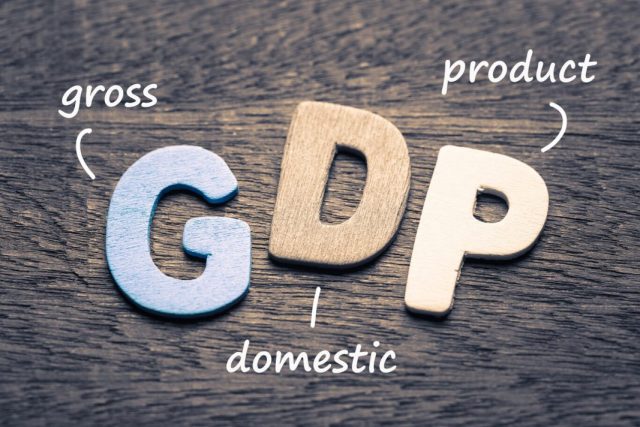Official figures now show that the gross domestic product (GDP) of the UK contracted by 19.8 per cent in the second quarter, at the height of lockdown.
A previous estimate by the Office for National Statistics (ONS) showed the GDP as shrinking by 20.4 per cent in the three months to June, compared to the previous quarter. The 19.8 per cent contraction still represents the largest quarterly drop in GDP since records began in 1955, and by some margin.
Whilst the second-quarter decline was slightly better than the original estimate, the first-quarter contraction was revised down from 2.2 per cent to 2.5 per cent. Overall, for the six months to June, GDP shrank 21.8 per cent compared with the earlier estimate of 22.1 per cent.
The figures confirm that Britain suffered the worst recession in the first half of 2020 of all the G7 advanced nations, with France faring next worst with an 18.9 per cent fall, followed by Italy, which shrunk by 17.6 per cent. Japan escaped with an 8.5 per cent contraction and the US economy shrunk by 10.2 per cent.
“More complete data has not substantially changed the picture, with the UK economy still shrinking by around a fifth in the first half of the year, far bigger than any previous contraction on record,” Jonathan Athow, deputy national statistician at the ONS, said.
Andy Haldane, the Bank of England’s chief economist, warned that “contagious pessimism” in the UK was undermining the economic recovery. He warned that the prospects for continued recovery would be endangered if people started “catastrophising” by looking at the record drop rather than focusing on the bounce back since then.
“Averting an economic anxiety attack calls for a balanced and flexible approach to the words and actions of businesses and policymakers,” the BoE policymaker said. “Encouraging news about the present needs not to be drowned out by fears for the future,” he went on, adding that he did not favour negative interest rates at the moment.
Mr Haldane acknowledged that a second wave of covid-19 cases, as now seems likely, would slow the economic recovery, but said unemployment was expected to rise to a lower peak than the central bank’s 7.5 per cent estimate, especially with the government’s new Job Support Scheme.
“Now is not the time for the economics of Chicken Licken,” he added.
Mr Haldane’s speech came after official figures for the second quarter showed consumers were initially extremely cautious when the UK was in full lockdown.
With covid-19 measures restricting movement and leaving many shops and restaurants closed, people’s ability to spend was limited over the second quarter. The household saving ratio — the average percentage of disposable income that is saved — increased to a record 29.1 per cent, up from 9.6 per cent in the previous three months.
Household spending fell by £80.5 billion, or 24.2 per cent, “the largest quarterly fall in nominal household spending ever recorded” as lockdown closed much of the economy. The biggest falls in spending were on “restaurants and hotels, transport — particularly air transport and motor vehicles — and recreation and cultural services”.
It was the first time the value of loans paid off exceeded new loans issued since the first quarter of 2010, after the financial crisis. Businesses also cut back on investment and halted dividends to preserve cash.
Businesses slashed investment by 26.5 per cent in the second quarter — the fastest drop on record, much worse than the 9.8 per cent drop during the 2008 global economic downturn, suggesting that companies have been pessimistic about the future during the pandemic.
The latest monthly GDP figures for August are due to be released next week, with analysts predicting that the economy is on track to register a record expansion in the third quarter.
However, with the number of coronavirus infections rising and more restrictions being put in place, economists are cautioning that this growth could falter before output returns to pre-crisis levels.
“The renewed Covid-19 restrictions will probably mean that GDP stagnates in Q4, leaving economic activity marooned 5.5 per cent short of its pre-crisis level,” said Ruth Gregory, senior UK economist at Capital Economics. “The risk now is that renewed containment measures send the recovery into reverse.”









